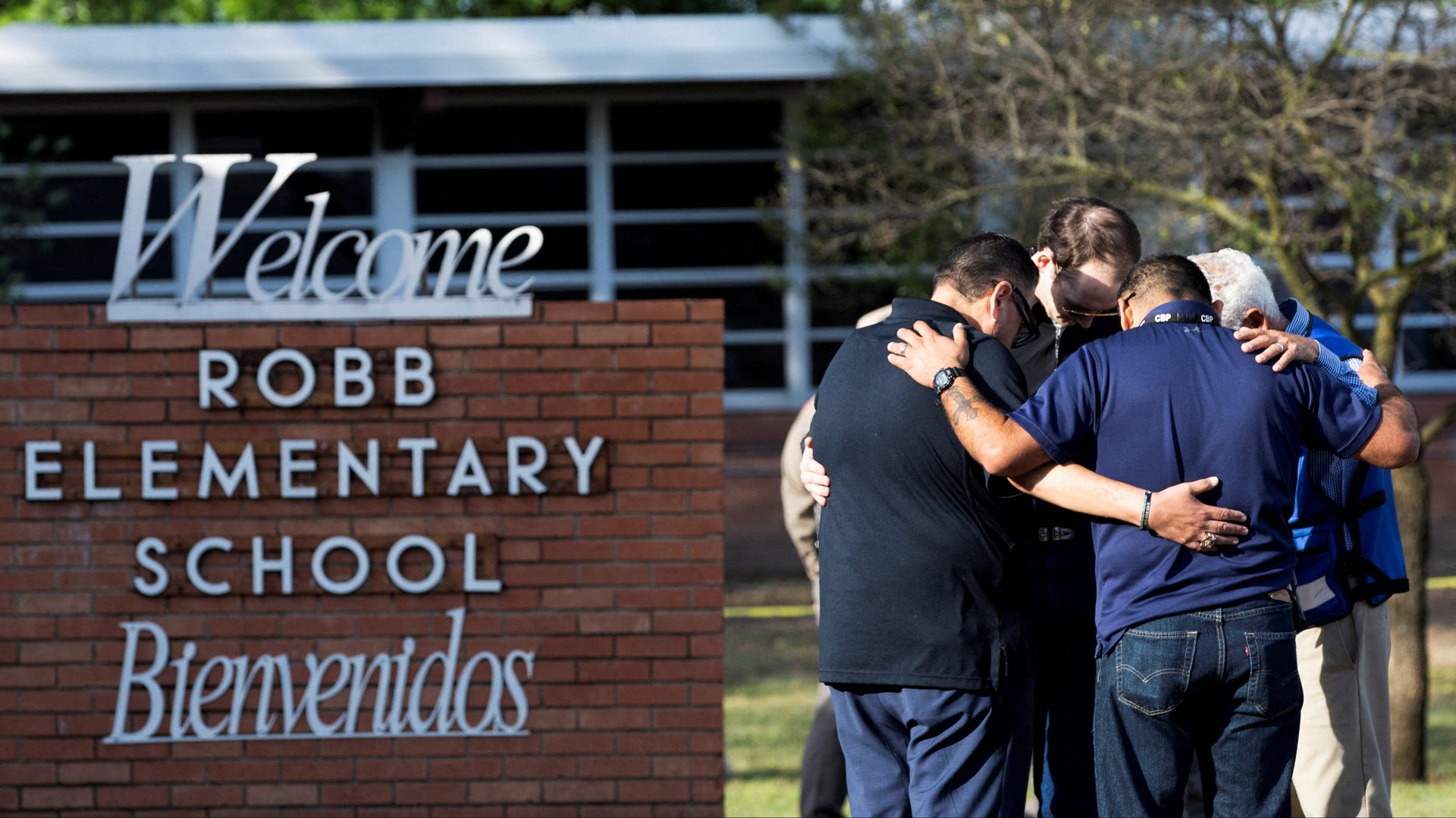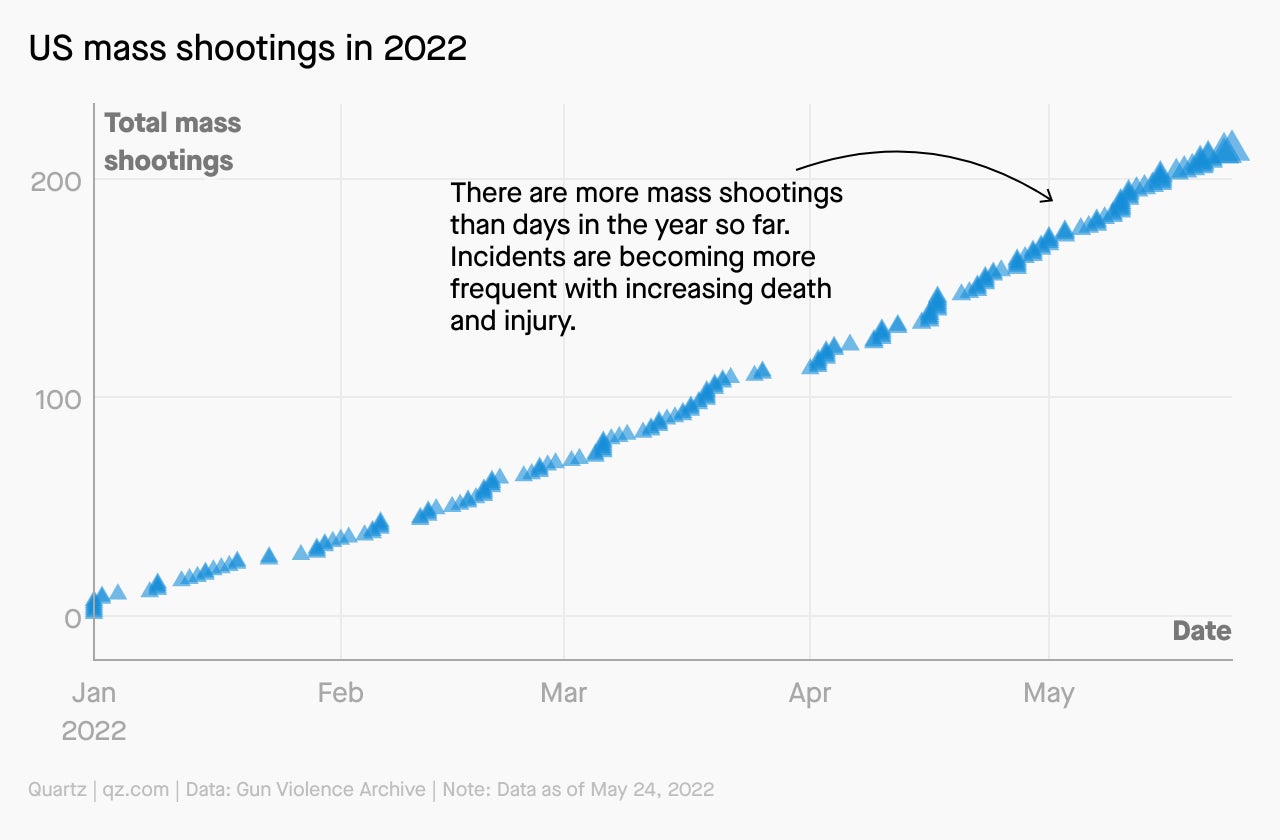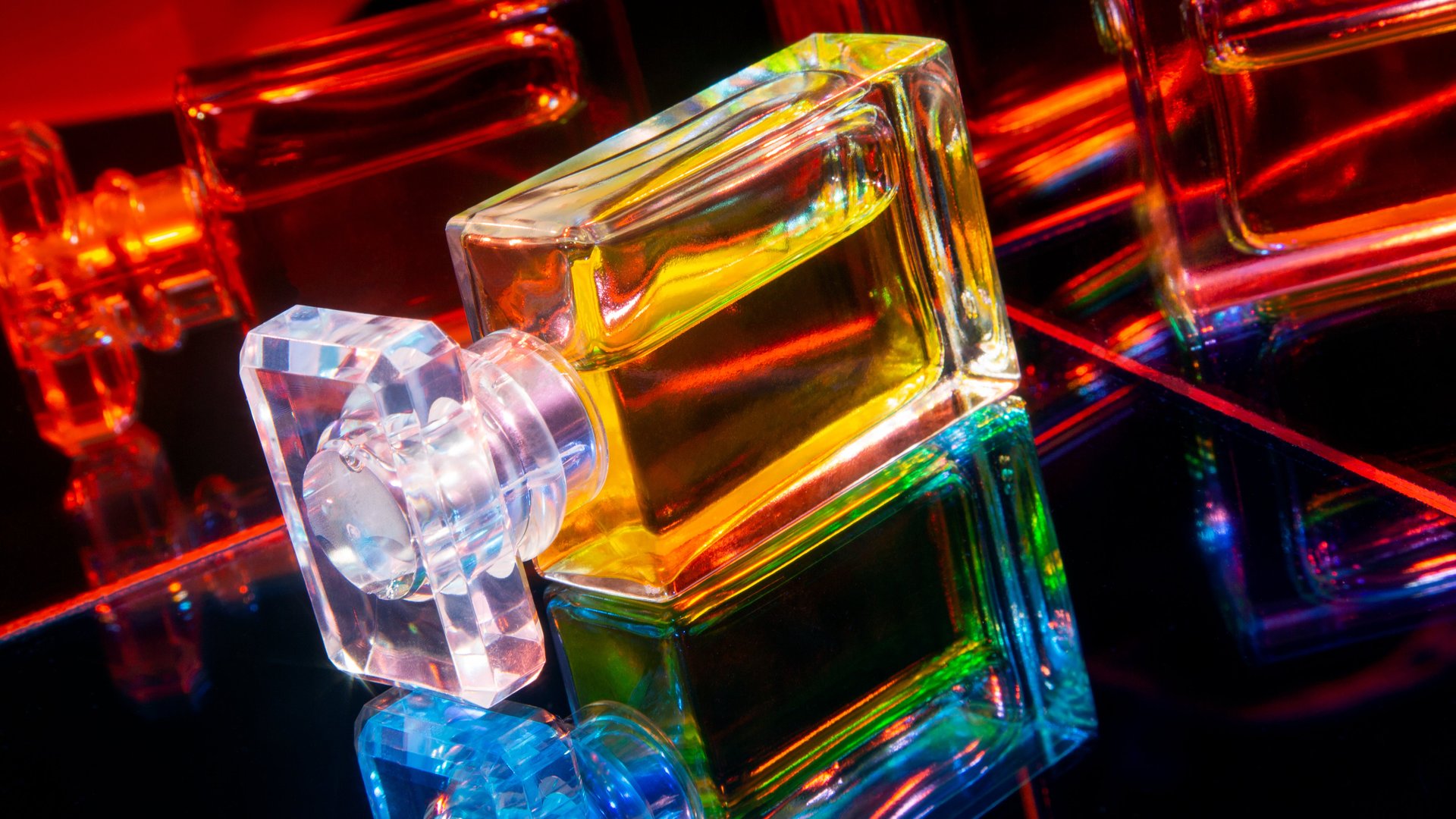🌍 Details of Uvalde emerge
Good morning, Quartz readers!


Good morning, Quartz readers!
Here’s what you need to know
Details of the Uvalde, Texas attack and timeline have emerged. The gunman announced his intentions on social media before driving to Robb Elementary School and shooting 19 children and two teachers.
Families in Uvalde have shared the victims’ stories. Some of the children were avid artists, others were basketball players. All were excited for what should have been a day of celebration at the school’s end-of-the-year party.
US Senate majority leader Chuck Schumer signaled there is no imminent vote on gun control. In an address to lawmakers, he stated: “My Republican colleagues can work with us now. I know this is a slim prospect.”
The US central bank may raise rates more aggressively than anticipated. Federal Reserve minutes released yesterday indicate it will likely implement faster, higher rate hikes to combat inflation.
Oklahoma’s governor signed the US’s strictest abortion ban into law. The law bans access to the medical procedure from the moment of fertilization, with few exceptions.
Russia promised to reopen Black Sea ports. On the condition that some sanctions are lifted, that is. The blockade of Ukraine’s ports has triggered a global food crisis as Russia faces mounting international pressure to allow grain shipments to pass.
The largest-ever crypto fund was announced. US venture capital firm Andreessen Horowitz raised $4.5 billion to back crypto and blockchain companies. The news has arrived amidst weeks of crypto market upheaval.
What to watch for

When Anthony Albanese was elected prime minister of Australia on May 22, climate change may have given him the deciding edge. Albanese campaigned on a promise to “end the climate wars” that have divided Australian politics in recent years and left the country lagging on climate policy among its peers. His policy promises to cut emissions 43% by 2030 from a 2005 baseline, and to turn the country into a “renewable energy superpower.”
But Albanese plans to go easy on the fossil fuel industry. The country is one of the world’s top exporters of liquified natural gas and supplies about 7% of global coal, a share that is steadily rising as the country invests in dozens of new coal projects alongside its solar panels and green hydrogen plants. Albanese’s new constituents may have some questions around how those projects are compatible with his broader emissions agenda.
A reckoning on gun culture

As the US reels from the murders of 19 children and two teachers by a single 18-year-old man with a very powerful gun, the big question seems to be, “Is anyone willing to do anything about it?”
Here’s where we are:
- After mass shootings, gun-toting Americans tend to stock up to protect themselves from other armed people and/or stricter gun control laws. Firearm and ammunition stocks are soaring in anticipation.
- A spate of recently passed Texas laws made it a lot easier to own and carry guns.
- Body armor, which is readily available in the US and has little regulation, is making shootings more deadly.
- Just days before the attack, a federal judge struck down a California ban on selling guns to buyers under 21.
- The National Rifle Association is moving forward with its annual meeting in Houston this week. (It did the same thing after the Columbine High School shooting in 1999.)
Pop quiz: Do you smell that?

Where does the perfume ingredient ambergris come from?
- Civet cat secretions
- Undigested squid beaks
- Infected agarwood resin
- Bird nest saliva
Listen to this week’s podcast to find out!
Perfume ingredients, both natural and synthetic, come from complex and surprising supply chains. That is poised to change further as life moves increasingly online, with some scents now being made for virtual consumption, bringing the next level of immersiveness to the metaverse. Follow the sillage of this week’s episode of the Quartz Obsession podcast—perfume, and its provenance.
💨 Listen on: Apple Podcasts | Spotify | Google | Stitcher
Sponsored by EY
Surprising discoveries
Before ketchup, there was kê-tsiap. The condiment, whose name comes from a Hokkien word, was brought over to Britain from Asia in the 17th century.
These shoes are trash-chic. Balenciaga designed garbage-style sneakers that sell for over $1,800. Apparently to make a statement about…the environment.
Ancient Maya wore anti-bacterial teeth bling. The practice of embedding their pearly whites with gems may have been more than just an aesthetic or spiritual practice.
Neolithic British cuisine was bloody delicious. Scientists have found that dwellers near Stonehenge dined on raw cow innards.
The Earth is losing its biocrust. The thin layer of topsoil found mostly in arid environments reduces global dust emissions by as much as 60%—but it may be under threat from climate change.
Our best wishes for a productive day. Send any news, comments, mustard origins, and tooth adornments to [email protected]. Reader support makes Quartz available to all—become a member. Today’s Daily Brief was brought to you by Tim McDonnell, Julia Malleck, and Susan Howson.